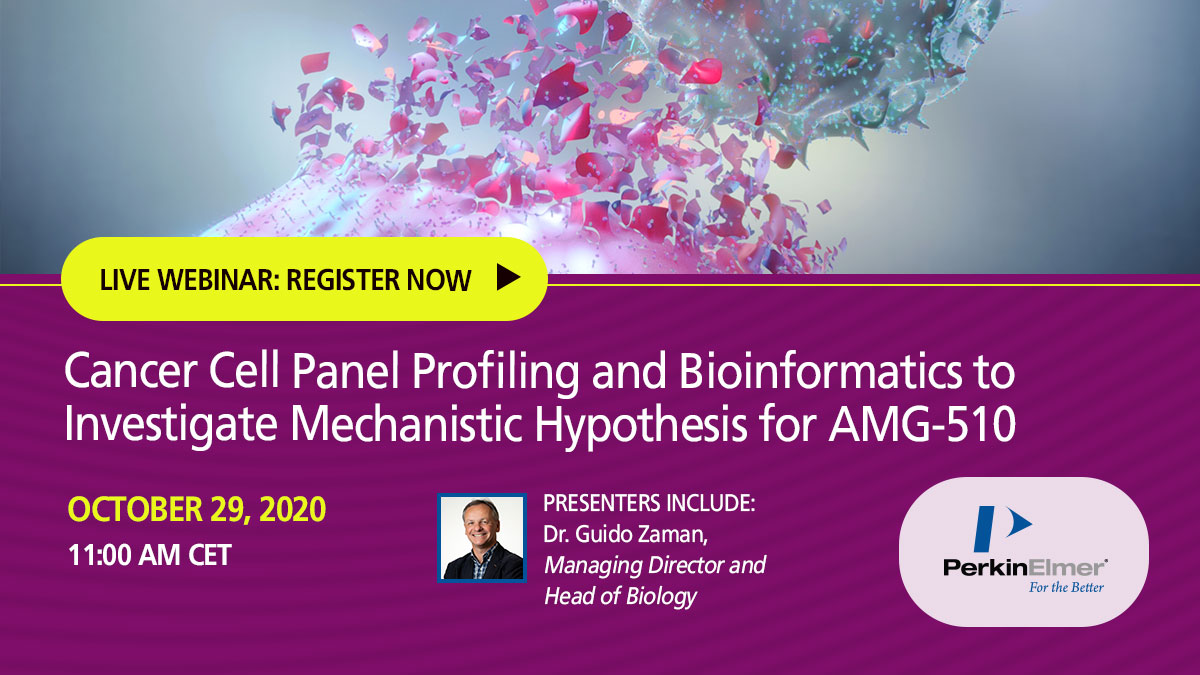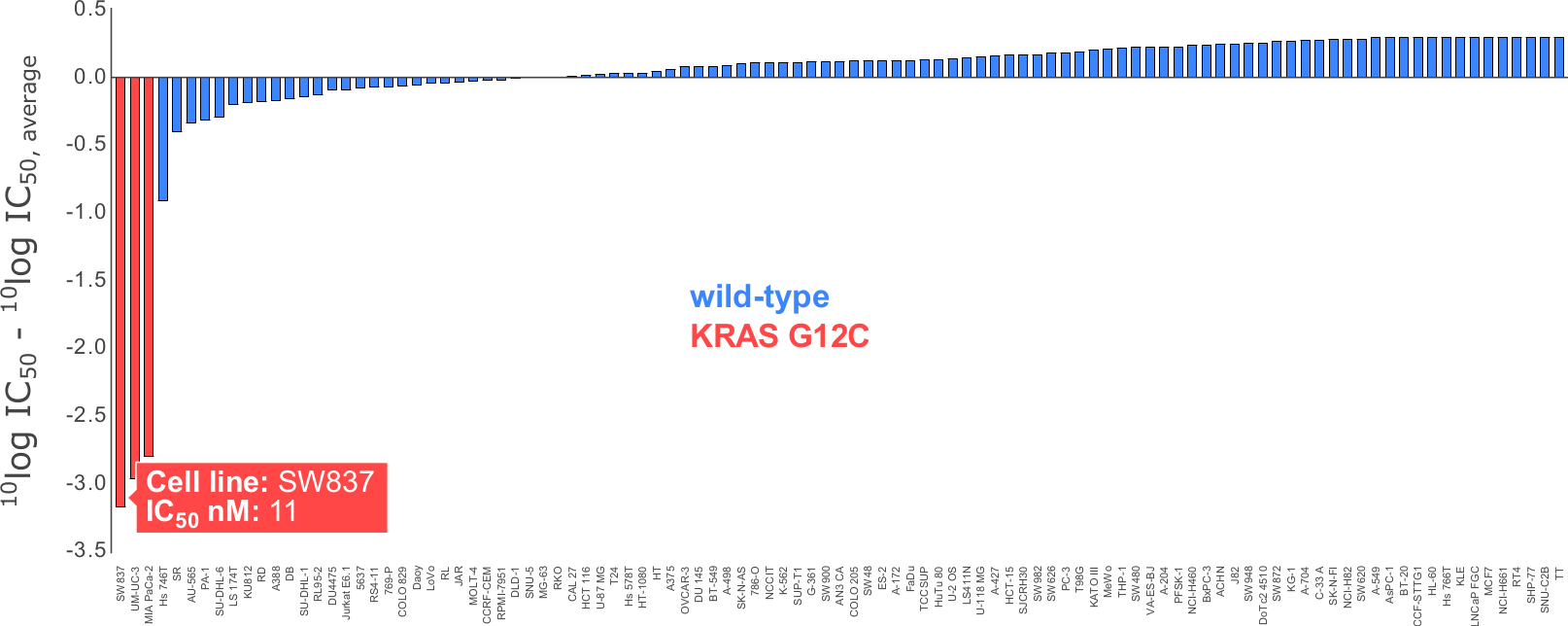
October 26, 2020: Announcement of webinar on cancer cell line profiling and bioinformatics analysis to investigate the mechanistic hypothesis for AMG-510.
Webinar – Investigate the Mechanism of AMG-510 via Cancer Cell panel Profiling and Bioinformatics
Oss, October 26, 2020 – In this webinar, Dr. Guido Zaman, Head of Biology of NTRC, will discuss how cancer cell panel profiling is used to identify genetic biomarkers for patient stratification. Specifically, he will discuss the determination of the activity of drug candidate compounds in cell proliferation assays with 100+ human cancer cell lines (Oncolines™ panel).
By means of a case-study for KRAS G12C inhibitor AMG-510, the presentation will showcase the reproducibility of the proliferation assays using ATPlite 1Step and the benefits of advanced bioinformatics analysis. The latter will reveal unique characteristics of the candidate compound, its likely mechanism of action and correlation with other existing drugs.
The webinar is kindly organized by PerkinElmer. Please register and enjoy!
More info on Oncolines™ cell-based profiling can be found at Go to www.oncolines.com.

Ranking of Oncolines™ cancer cell lines according to sensitivity to KRAS G12C inhibitor AMG-510.
Dr. Guido Zaman is molecular biologist and co-founder of NTRC. Guido studied Biology at Radboud University in Nijmegen and received his Ph.D. from the same university in 1991. He worked as an investigator at the Netherlands Cancer Institute in Amsterdam, before he moved to industry in 1996. At N.V. Organon/MSD he was a line manager (last position: Senior Director Molecular Pharmacology) and leader of various multidisciplinary project teams on protein kinases, GPCRs and assay development for high-throughput screening.
NTRC is a precision medicine company dedicated to discovering new anti cancer drug candidates. We help you to find a mechanistic hypothesis before entering the clinic. We can study a wide range of cancer cells, primary patient material and immune cells in vitro, in isolation and in coculture, after exposure to monotherapy and combination therapy. In addition, we perform in-depth mechanistic analyses in cells and by biophysical methods, such as Biacore and LC-MS/MS. Keywords are: Quality. Flexibility. Short Turnaround Time.





